Relevant Overviews
- Content Strategy
- Online Strategy
- Online Community Management
- Social Media Strategy
- Content Creation & Marketing
- Digital Transformation
- Innovation Strategy
- Surveillance Capitalism, Social media and Polarisation (Overview)
- Communications Tactics
- Psychology
- Productivity
- Social Web
- Media
- Politics
- Communications Strategy
- Science&Technology
- Business
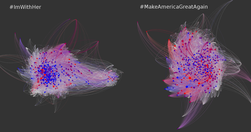
my research team’s analysis of data from Columbia University’s Emergent rumor tracker suggests that this misinformation is just as likely to go viral as reliable information... limiting news fakers’ ability to sell ads... a step in the right direction. But it will not curb abuses driven by political motives... Using BotOrNot, our colleagues found…

Perfectly open communities always go sour. You need filters. Every functional community has them. And that’s where machine learning comes in... If you can detect trolls, you can protect the people they’re trolling by muting or putting a warning over the trolls’ posts... Twitter... already have a way of screening out porn. Why don’t they do the sam…

a lot of people don’t know fake news when they see it, sensationalized reports are more likely to go viral on social media than sane ones, and distrust of traditional (and genuinely more reliable) media sources is rising. Professor Nicole A. Cooke ... focusing on human information behavior, information literacy, and diversity in librarianship.... …

As Facebook attempted to capture the fast-moving energy of the news cycle from Twitter... it built a petri dish for confirmation bias... Here’s how... ‘Share’ Button ... encouraging people to share quickly and without much thought... “original sharing,” where people post their own photos, text updates... was declining..., content from celebritie…

“So all the fact-checking of Trump’s lies, all the investigative journalism about his failures, even the tapes — none of it meant anything.” In short, what happened to news ...? determining what counts as journalism and who counts as a journalist is a perpetual struggle ... No single trend explains the dissolution of news... What we ended up with…

If you’re shocked, as I am, by the Presidential election result, you live in a bubble...Your job now is to step outside of whatever bubble you live in and educate yourself... Paying for news — investing in quality journalism and a free and open press — is what allows us to maintain our democracy. It’s not a coincidence that despots like censorship…

Zuckerberg... suggested the real problem is that people by nature engage with content they like and find agreeable, and dismiss things they don’t agree with online as they would in real life... it needs to implement better features to help diversify the content we see... For such an influential platform ... it’s irresponsible for Facebook to give …
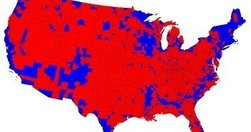
How to make sense of Donald Trump’s election? Here are some articles which helped me. Maybe they’ll help you.

many of us have burrowed into our own echo chambers of information. In a recent Pew Research Center survey, 81 percent of respondents said that partisans not only differed about policies, but also about “basic facts.”... if you study the dynamics of how information moves online today, pretty much everything conspires against truth... when confron…

Two convergent trends are making populism a potent negative force. First, democracies have morphed into unrepresentative plutocracies that lead growing numbers of people to feel shut out and voiceless... Media ... business model is now based on social media and clicks, not facts. Clicks depend on theatrical performance, stunts, celebrity, ent…
Segregated social universes, an industry moving from red states to the coasts, and mass media’s revenue decline: The disconnect between two realities shows no sign of abating... American political discourse in 2016 seemed to be running on two self-contained, never-overlapping sets of information... today’s media ecosystem encourage that separatio…
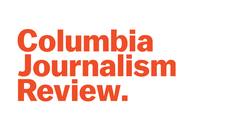
with newsrooms reeling... a weakening of the stable platforms threatens to cause general informational impoverishment, a degradation of the entire information ecosystem. Adding to the worry, people today are exposed to news ... through a single platform—mainly social networks, which tend toward a clustering of like-minded individuals. Together,…
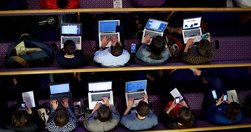
it’s too soon to declare that we have entered a “post-fact” apocalypse... great majority of people learn about political news from mainstream, relatively centrist media sources, not ideological websites or cable channels... a sizable fraction of total political news consumption by Republicans was devoted to heavily conservative-aligned outlets lik…
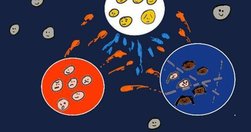
My first experiment with blogging on facebook

a research paper ... found depressing proof that the web is fuelling segregation.... matched the attitudes of those who did and did not have broadband with data on partisan hostility... Greater use of the web ensured that an admirer of Jon Stewart would think that conservatives were not just mistaken but stupid, or a viewer of Fox News would wor…

image... apparently shows the spread of radiation from the Fukushima nuclear accident... being shared widely ... despite the fact that it... shows the wave height of the tsunami... you might want to doublecheck before hitting Share... here’s how

While our experience with political Facebook posts suggests, anecdotally, that the thrust of the story is correct, we cannot confirm the authenticity of the study... Our efforts to reach Rantic before publication were unsuccessful, and Wired has since retracted its story.

A couple of months ago I included augmented and virtual reality in Top3ics, my occasional newsletter, adding “Consider these as first notes towards a future post.” I then forgot about it. Thanks, Newt Gingrich!
In this world of hundreds of channels and uncounted websites, of exquisitely targeted advertising and unbridled social media, it is easy to construct your own intellectual ghetto, however damaging that might be to the ideal of the free exchange of ideas. "Right now the left plays to the left and the right plays to the right... That's why we kee…

Brexit, as experienced by a British-Australian comms guy in Brussels.

No longer will I read or give attention to hyper partisan news entities or the conservative echo chamber... I remember not long ago when tragic events used to bring us together as a nation. Now because of increasingly powerful and extreme echo chambers on the right and left these events tear us apart...In the clickbait era, media entities, aggrega…

“I am actively searching through Facebook for people celebrating the Brexit leave victory,” ... to no avail. He called on his friends in the technology industry to act on this ‘echo-chamber problem’.... Why are they making the demand of social media companies — and not news organisations?...how we see technology now: both as something separate fro…

This year's report reveals new insights about digital news consumption based on a YouGov survey of over 50,000 online news consumers in 26 countries including the US and UK.The report suggests that publishers across the world are facing unprecedented levels of disruption to business models and formats from a combination of the rise of social platf…

to “live fully and leave the world a little better than you found it,” it’s crucial to understand the perspectives of those with whom you disagree. In an except from that speech above, Power argues that by allowing us to tailor our information intake to our existing tastes and opinions, social media stymies our ability to understand others.
This isn’t the first time I’ve covered the impact of social media on news; technologies like augmented reality; and the impact of both on society. It is the first time these Top3ics have meshed so perfectly in one month.

To demonstrate how reality may differ for different Facebook users, The Wall Street Journal created two feeds, one “blue” and the other “red.” If a source appears in the red feed, a majority of the articles shared from the source were classified as “very conservatively aligned” in a large 2015 Facebook study. For the blue feed, a majority of each …

we provide an overview of concerns that have dominated the public information policy discourse, and review the main insights from empirical research We conclude ... there is no empirical evidence that warrants any strong worries about filter bubbles. Nevertheless, the debate about filter bubbles is important. Personalisation on news sites is stil…

The filter bubble... has evolved. Algorithms, network effects, and zero-cost publishing are enabling crackpot theories to go viral... impacting the decisions of policy makers and shaping public opinion, whether they are verified or not... Facebook's news feed ... tailored just to us ... to keep us interested and happy... drives engagement and mor…
Ironically, with the widening of (national) news choices that the Internet has spawned, we’re depending on fewer pipelines of news. It’s a narrowing of the filter funnel...t as troubling as the filter bubbles that used to occupy our concerns, but likely more potent. As those pipelines narrow, necessarily, the decision on what is news, and what is …
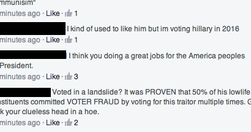
Study shows political discussions are ruining Facebook and friendships... users who try to talk about politics on Facebook are often surprised by the political opinions of their acquaintances... a diverse set of opinions among a user's friends makes everyone want to speak up less...Facebook has a low threshold for “friending” ... can bridge togeth…
Relevant Overviews
- Content Strategy
- Online Strategy
- Online Community Management
- Social Media Strategy
- Content Creation & Marketing
- Digital Transformation
- Innovation Strategy
- Surveillance Capitalism, Social media and Polarisation (Overview)
- Communications Tactics
- Psychology
- Productivity
- Social Web
- Media
- Politics
- Communications Strategy
- Science&Technology
- Business